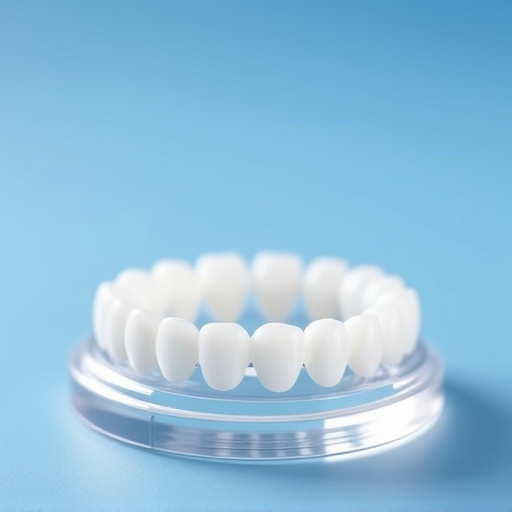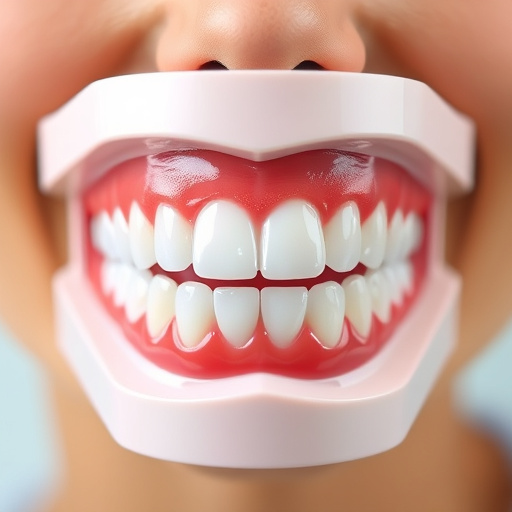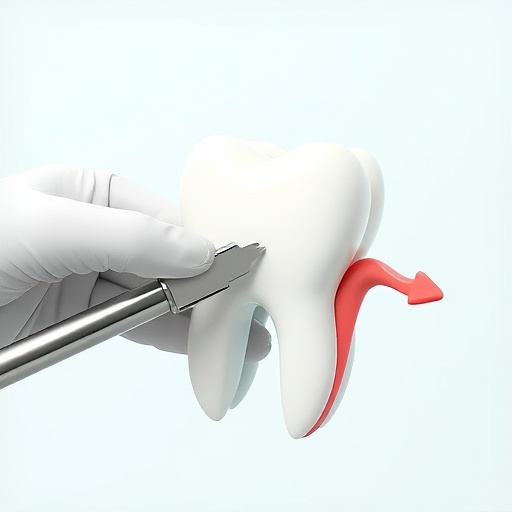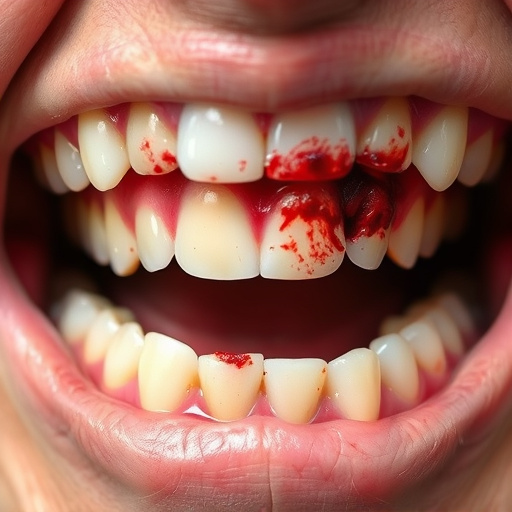Tooth sensitivity, caused by dentin exposure, can be managed with a multi-faceted approach led by dental professionals. Triggers like decay, gum recession, and acidic foods can be addressed through advanced treatments such as dental implants, custom crowns, and dental bonding. Regular dental check-ups, using sensitive toothpaste, and avoiding acidic foods are best practices for effective tooth sensitivity treatment, enhancing oral health and patient confidence.
Do you suffer from tooth sensitivity? You’re not alone. Many people experience discomfort when consuming hot, cold, sweet, or acidic foods and drinks. Fortunately, long-lasting relief is possible with advanced tooth sensitivity treatments. This article delves into understanding the causes and common triggers of tooth sensitivity, exploring modern treatment options, and providing a comprehensive guide to managing and preventing this condition. Discover how you can regain comfort and confidence in your smile.
- Understanding Tooth Sensitivity: Causes and Common Triggers
- Exploring Modern Treatment Options for Long-Lasting Relief
- A Comprehensive Guide to Managing and Preventing Tooth Sensitivity
Understanding Tooth Sensitivity: Causes and Common Triggers

Tooth sensitivity is a common dental issue that affects millions of people worldwide. Understanding its causes and triggers is the first step in seeking long-lasting relief through effective tooth sensitivity treatment. Sensitivity typically arises from the exposure of the dentin, the layer beneath the enamel, which contains tiny tubes connecting to the nerves in your teeth. This exposure can be caused by various factors such as tooth decay, gum recession, or even excessive brushing pressure.
Common triggers for tooth sensitivity include consuming acidic foods and beverages, using aggressive or hard-bristled toothbrushes, and exposing teeth to extreme temperatures (hot or cold). Additionally, certain dental procedures like teeth cleaning or getting dental implants can temporarily sensitize teeth. Identifying these triggers is crucial in managing tooth sensitivity effectively. With the right approach and the guidance of a professional dentist, individuals can find lasting solutions to their sensitive teeth, restoring comfort and confidence in their oral health.
Exploring Modern Treatment Options for Long-Lasting Relief

In today’s dental landscape, exploring modern treatment options for tooth sensitivity offers a promising journey towards long-lasting relief. Beyond traditional approaches like fluoride applications and desensitizing toothpastes, advancements in dentistry have introduced innovative procedures tailored to address this common concern. From dental implants that provide stability and restore oral function to family dentistry practices offering custom-fitted dental crowns, these modern treatments cater to diverse needs.
Each method leverages cutting-edge technology and materials to deliver effective solutions. Dental implants, for instance, serve as a strong foundation, merging seamlessly with natural bone to secure artificial teeth. Meanwhile, dental crowns, crafted from durable materials like porcelain or zirconia, shield vulnerable tooth structures, mitigating sensitivity and enhancing overall oral health. These treatments not only alleviate the discomfort associated with tooth sensitivity but also contribute to improved confidence and quality of life for patients.
A Comprehensive Guide to Managing and Preventing Tooth Sensitivity

Tooth sensitivity can be a persistent issue, but managing and preventing it is achievable with the right strategies. A comprehensive approach involves regular dental check-ups and cleanings, which are crucial for removing plaque buildup and maintaining oral health. During these visits, your dentist might recommend specific procedures like dental bonding to seal off exposed dentin, providing long-lasting relief from sensitivity.
Additionally, incorporating routine oral exams into your healthcare regimen allows for early detection of issues. By addressing sensitivity at its source, whether through improved brushing techniques or specialized treatments, you can prevent further damage and discomfort. Combining these measures with a sensitive toothpaste and avoiding acidic foods and drinks will significantly contribute to managing and reducing tooth sensitivity.
Tooth sensitivity can be a persistent issue, but with the right approach, long-lasting relief is achievable. By understanding the causes and triggers, individuals can make informed decisions regarding modern treatment options that offer significant benefits. A comprehensive management strategy, combined with preventive measures, equips folks to take control of their oral health and bid farewell to sensitivity for good. Remember, seeking professional guidance and exploring tailored solutions are key steps towards a smile that’s sensitive-free.














